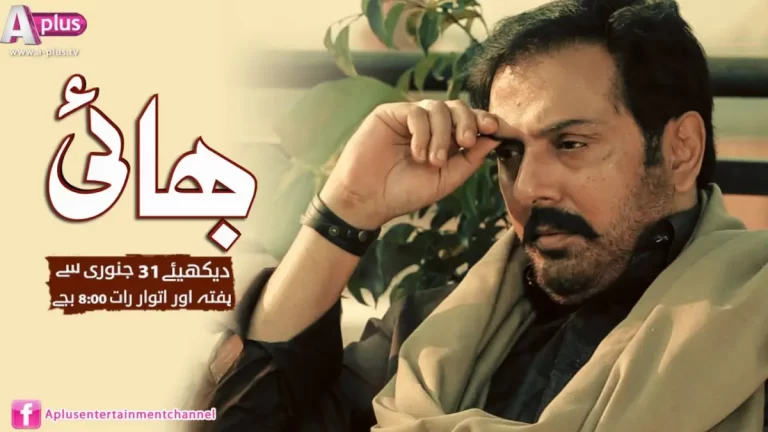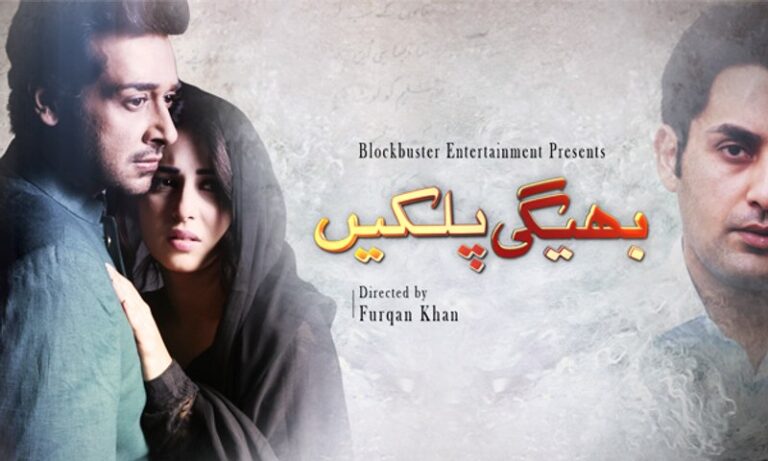All good things must unfortunately come to an end, and our well thought out narrative had little room for any other maneuver. There was some very meta dialogue about no tomorrows and happy endings not being very convincing, but the question really is, was this finale convincing enough?
Mansoor made a return to plead his case- presents, compliments, apologies – if they sounded like we had heard it all before, indeed we had. Only last time it was Kuku who he tried to assure with “sab kuch theekh ho jaye ga” to now a “theekh thaak” situation with Laila.
If he had tried to rekindle the flame with Kuku, he hoped to play savior with Laila mostly to restore the status quo, and stake his claim to his wife and daughter, his rightful property. Men like Mansoor don’t change and his pleading with Laila and hidden taunts of “mere baighar tum kuch nahin ho” were attempts to restore that order, erase the past.
Thankfully, Mansoor stayed believable in his unchanged ways. Sohail Sameer played him impeccably with true blue desi entitlement and his clean shaven look has made me a fan!
As for Laila, with all the zulm ki inteha going around and less than thorough examination of the situations she finds herself in, a little hard to digest that it wasn’t the banna sawarna that ‘elderly’ folks are likely to object to, but her still defined identity as someone else’s wife and the mother of his child.
It took at truly revolting suggestion from Mansoor for Laila to finally end her marriage, something that should have come to pass much earlier. The framing of the Quran on the top shelf of the book case as Mansoor and Laila’s conversation played out was quite clever too!
Clean breaks to clear beginnings. All in all, Laila’s character had a lot of growth and Alishba Yousef handled her ably. Her rendition of internal conflict was truly heart break personified.
I’ve had issues with her character’s placidity, and the inability to present her naivety and maturity in an even handed way but surely she is one of the better heroines we have seen on the small screen in a while and elegantly dressed with nary a rhinestone in sight.
As for the other main player in this last episode, Saadi taking an (international, but of course) break to find himself, really? Saadi, the poetry-spouting sensitive artist not knowing who he is? Isn’t that prerequisite to being an artist – an identity? Also the super speedy, and I mean Speedy Gonzales speedy finding of one and returning in the blink of an eye was a missed opportunity.
Faris Khalid, who could easily pass for Abhishek’s younger brother, still has a ways to go but heck, if it was truly him singing Annie’s song, he gets a free pass from me.
Perhaps having him return when the kiddo was a toddler and Laila graduated to printed saris, just to show a passage of time and for us to believe that Laila truly was the new changed woman Kuku saw. Alas, Kuku only made that observation once she paired the happy couple together (though not bound in holy matrimony). Ergo, Laila still needed a man to complete her.
Fortunately, that wasn’t true of Kuku whose character arc actually revealed and completed itself a while ago. Iffat Omar breathed such sensitivity and nuance into her performance that made it hard to simplistically judge her as the other woman.
Fawad Khan too won us over with his annoying Khurram all grown up minus suspenders and salvaging his self-respect and played a key part in turning Kuku from an insecure wreck to a happier person secure in her solitude. The letters from Khurram was a nice nostalgic touch (500 points for the lost art of letter writing and another 500 for including a Beetle in the background!) and this has been Team Pechan’s strong suit – inspirations and mis en scene steeped in nostalgia of eras gone by.
The entire supporting cast was stellar. Mrs. Ruby Khan, Anita Camphor in a role no one else could carry off with such aplomb as the bitter wife with a great sense of humour too stayed true to her moorings of being swayed by a compliment and dishing out great advice often with food. Best. Friend. Ever.
Qazi Wajid sahib brought back the lovable Dads of yore and his fauji stride, wonderful cravats and great dialogues were a delight to behold. More of him please!
Laila’s mom and mother-in-law who were unfortunately straitjacketed in the must-represent-repressive-society roles still worked beautifully because of the visual ways in which the characters were realized. An always groomed and well heeled Parveen Malik and Sumbul Shahid, with her patriarchal blinkers, the master of her empty domain.
All in all, Pehchan was a gem. It started out strong and immersed all of us into a world that we easily recognize, not just in the characters but also in ourselves. Some things didn’t hit the mark –the attempt at sound design was noteworthy though there needs to be more technical finesse. Repetition of some scenes as well as dialogues made for a slow middle, as well as some be-labouring of subtext and the lack of likeable male characters was also a bit of a downer.
Also this need to have women take everything thrown at them with no show of rightful indignation is also problematic. There were moments of turning the table to reveal hypocrisies and double standards, but I never saw the subversion we were promised.
I’ve said before that the whole look and sensibility of Pehchan reminded me of 70s parallel cinema and the lovely touches of Pablo Neruda’s poem, quotes from Anna Karenina, Annie’s song, a handful of Dylan, gramophones, hill station setting, wood paneled interiors, and song choices showcase the inspirations and artistic sensibility of writer Bee Gul, translated by the able hand of the director Khalid Ahmad sahib, painted on screen by the cinematographer Naveed Malik.
BeeGul deserves laurels for her deft handling of sensitive subjects such as marital rape and intimacy being able to point a mirror to us all and show us the hypocrisies and double standards without ever resorting to moralizing and preachiness. She is a wizard at revealing the characters and effortlessly flitting between the past and present and bring out each person as someone we could relate to and possibly already know with dialogue rich in subtext.
Pehchan was one of those wonderful works where the vision of the writer and director was realized by the entire team with stellar technical input in camera, production and excellent performances so we really need to acknowledge and applaud the producers – Seema and Razi-ud-din Ahmed for their willingness to take on non-commercial risks and the writer-director for treating their audience with intelligence and respect.
Kudos Team Pehchan, may we see many more such gems from each and every one of you!
MM (aka A musing Muslim)




 THE QUEEN OF MY DREAMS
THE QUEEN OF MY DREAMS  A heartfelt story
A heartfelt story 


 This summer, let your child explore,
This summer, let your child explore, 






 Saim
Saim 


